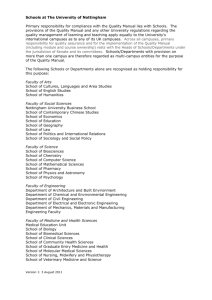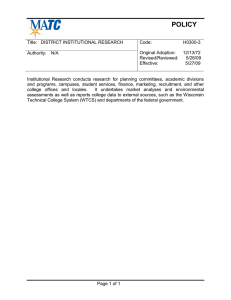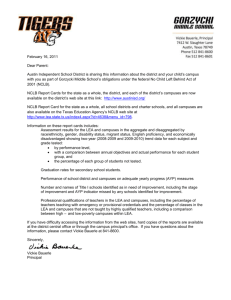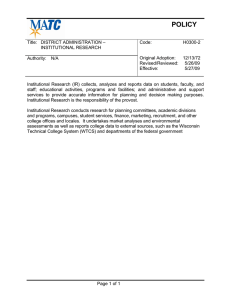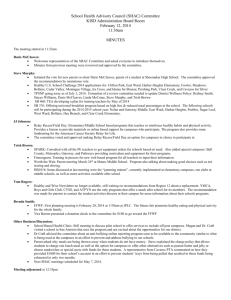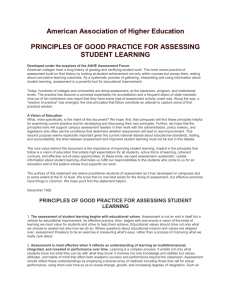The Value of the University ... – Leveraging Our Collective Administration Resources
advertisement
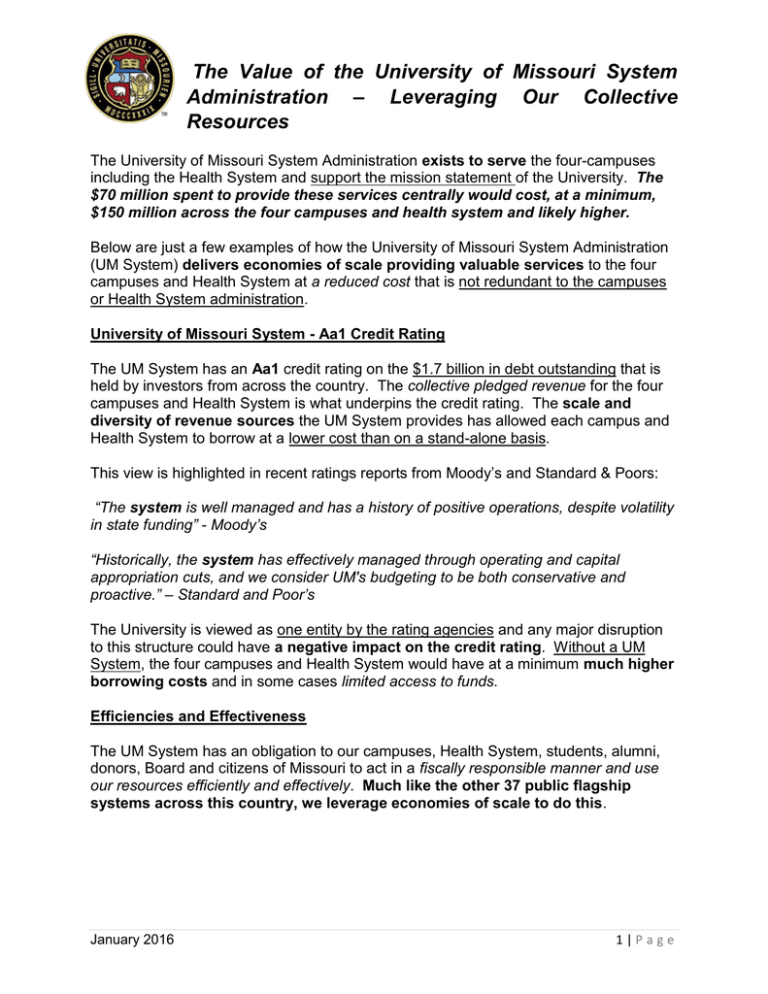
The Value of the University of Missouri System Administration – Leveraging Our Collective Resources The University of Missouri System Administration exists to serve the four-campuses including the Health System and support the mission statement of the University. The $70 million spent to provide these services centrally would cost, at a minimum, $150 million across the four campuses and health system and likely higher. Below are just a few examples of how the University of Missouri System Administration (UM System) delivers economies of scale providing valuable services to the four campuses and Health System at a reduced cost that is not redundant to the campuses or Health System administration. University of Missouri System - Aa1 Credit Rating The UM System has an Aa1 credit rating on the $1.7 billion in debt outstanding that is held by investors from across the country. The collective pledged revenue for the four campuses and Health System is what underpins the credit rating. The scale and diversity of revenue sources the UM System provides has allowed each campus and Health System to borrow at a lower cost than on a stand-alone basis. This view is highlighted in recent ratings reports from Moody’s and Standard & Poors: “The system is well managed and has a history of positive operations, despite volatility in state funding” - Moody’s “Historically, the system has effectively managed through operating and capital appropriation cuts, and we consider UM's budgeting to be both conservative and proactive.” – Standard and Poor’s The University is viewed as one entity by the rating agencies and any major disruption to this structure could have a negative impact on the credit rating. Without a UM System, the four campuses and Health System would have at a minimum much higher borrowing costs and in some cases limited access to funds. Efficiencies and Effectiveness The UM System has an obligation to our campuses, Health System, students, alumni, donors, Board and citizens of Missouri to act in a fiscally responsible manner and use our resources efficiently and effectively. Much like the other 37 public flagship systems across this country, we leverage economies of scale to do this. January 2016 1|Page The Value of the University of Missouri System Administration – Leveraging Our Collective Resources It is conservatively estimated that without the UM System, cost to the four campuses and Health System to replicate these services would more than double. Many if not all of the services provided by UM System, would have to be replicated five times over on the four campuses and at the Health System. For example, this would include having to establish five separate Payroll Offices, Legal Offices, Benefit Administration Offices, IT Systems Support, Treasurer’s Offices, Government Relations, Technology Transfer, etc. System 2-5 Times Cost to Replicate MU S&T UMKC UMSL MUHC Below are specific examples where the UM System leverages economies of scale: Administering a $400 million employee benefit plan and a $250 million retiree benefit plan for all four campuses in an efficient and effective manner. o Based on Towers Watson's Health Care Financial Benchmark report the University of Missouri's medical benefit is 23% more efficient than the Adjusted Benchmarks, equating to an annual savings of $2,815 per covered employee which totals ~$53M system wide (19,000 employees enrolled in medical). Centrally managing and integrating applications and technologies, which enable the Human Resources, Finance, Student Administration and Development functions for all four campuses at cost of approximately $20 million per year. Overseeing a $3.5 billion investment portfolio for the four campuses and $3.6 billion investment portfolio for the shared retirement plan. Institutional Support costs on a per student basis 37% lower than the peer average. The peers include eight similar systems (Arkansas, Colorado, Michigan, Minnesota, Nebraska, Tennessee, and Texas A&M). The following quote represents the UM System strategy to support and serve the campuses and Health System with economies of scale and shared services: “The whole can be greater than the sum of its parts, that we all have something to put in the pie to make it better, and that the collaborative interaction works.” – Frank Gehry, Architect January 2016 2|Page
